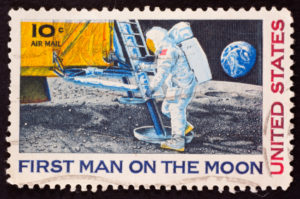
It took leadership, not hubris, for our nation to put a man on the moon. We need more of that kind of “solve the big problems” leadership.
We have many words for leadership, a trait desperately needed to surface solutions to today’s multiple crises: the pandemic, climate change, economic recession, inequality, and social unrest. We also need leadership to rally people around whatever solutions eventually arise.
The opposite of leadership, to me, is hubris, and we are observing way too much of it during today’s crises. Hubris is an arrogance, a bold audacity, an overblown impression of one’s own importance.
Hubris is also the opposite of respectfulness, which is at the heart of effective leadership. Respectfulness-in-action is challenging another’s behaviors but not making assumptions about the underlying motives. So is seeing the value in every human, from janitor to Board Chair, from the asylum seeker to the esteemed citizen, and acting in support of each person’s worth. Successful leaders tell the truth, as the respect of others demands we are truthful with them. A signal of hubris? Look for hypocrisy, as a self-inflated view makes one blind to the conflicts between one’s words and actions.
You can find hubris at the center of many of the headline stories today.
Fired McDonalds’ CEO Steve Easterbrook acted in defiance of his company’s policies by having a text-based sexual relationship with an employee. The Board rightfully tried to claw back his severance after discovering he had had three other forbidden relationships with employees and lied about them during the investigation. Easterbrook argues in court that this clawback is illegal as the evidence was in the computer servers that he had lied. Too bad, according to Easterbrook, that the Board did not investigate deeper. Hubris.
Four of America’s wealthiest citizens signed the Giving Pledge, a promise by the signer to give away more than half of his wealth during his lifetime or in his will. Jeff Bezos, the Amazon CEO, and richest American is not one of the signers. His net worth rose from $131B in 2019 to over $200B recently. He rarely appears on the list of the top 50 philanthropists in the US and his gifts (e.g., to Princeton) are in the millions-of-dollars range. A billion is one-thousand millions. He is worth two-hundred thousand million dollars. Think about it. Hubris.
Many Americans face economic peril. The current US Federal Reserve Chair and past Chairs have argued Congress must step up and provide fiscal stimulus. Monetary policy has done about as much as it can. Instead, the GOP-Senate Majority Leader sent the Senate home. Passing a bill was possible, given the strong support for action from some GOP members and the Democrats. But doing so would have angered the “let them eat cake” GOP Senators. GOP Senators from states with the most dependence on Federal funds historically (Mississippi, Louisiana, New Mexico, Arizona, and Kentucky) were among those voting for no new aid. Hubris.
Larry Kudlow, Trump’s chief economic advisor, spoke at the GOP convention as if the COVID-19 pandemic is behind us. Over a thousand people in the US died each day of the four-day event. Trump defied US tradition and law by turning the White House, The People’s House, into a political convention hall. No one wore masks, despite reputable studies that they save lives. Trump, despite data to the contrary, told us in March not to worry about the pandemic. He is still telling us not to worry. As a result, we lack public policies that could solve supply chain problems with testing supplies, leaving the states bidding against one another for scarce resources. Hubris.
Hubris is not new to today’s society. Before the 2008 recession, too many board members did not bother to understand their organization’s risk position, such that a downturn in housing prices would bankrupt their financial institution. These same leaders fought against the Volcker Rule and capital reserve requirements to make our financial system less risky. They, and other board members who view their position as a reward versus a vital responsibility, are also guilty of hubris.
Servant leadership is not an alternative to hubris. Sometimes a leader cannot be in service to their employees; instead, they have to make tough calls to steady a ship and put it on the right course. Humbleness is the anecdote to hubris.
It is no accident that the solidly researched leadership book Good to Great demonstrated that the best leaders are humble leaders, eager to learn, open to others’ ideas, and wanting to be surrounded by strong voices, not compliant ones. In many ways, our US Constitution is a check against hubris – as it prevents any party from acting without checks and balances.
Our election is a choice between a man of astonishing hubris, Trump, and a man of great humility, Biden. Both are strong. What our nation needs, what future generations of our children need, is clear. Please vote for national needs, not your tax or company’s regulatory position, in the upcoming election. We need a break from hubris in the Executive Branch.
